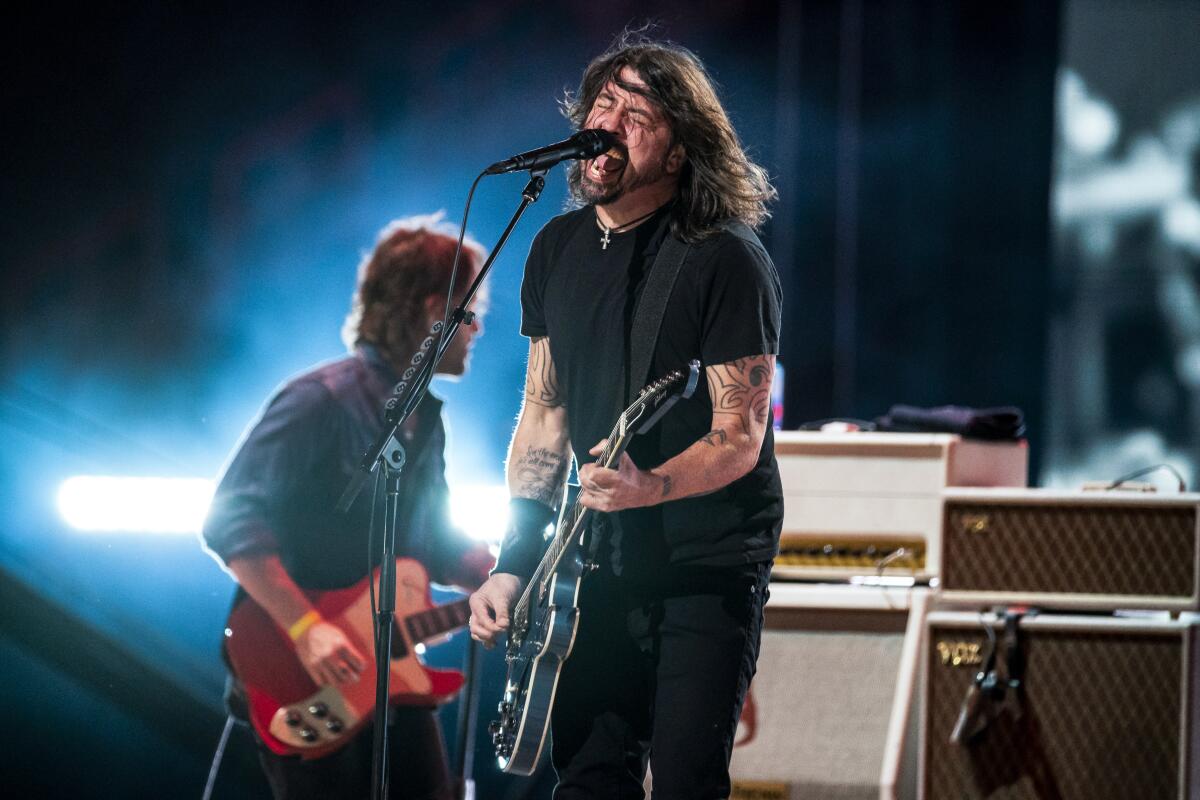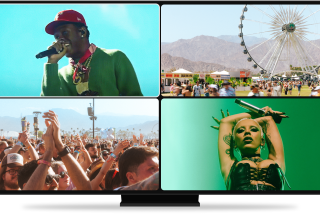What Zoom fatigue? Pandemic virtual concerts may have changed live music forever

- Share via
Americans may be bleary-eyed from Zoom fatigue, and many may be desperate to get back to live concerts and movie theaters.
But virtual events are here to stay, despite the return of music festivals, movies and comedy shows, after the COVID-19 pandemic subsides, according to new data published Thursday by United Talent Agency.
Three out of four people attended an online event during the pandemic, according to a survey of 1,000 consumers by UTA IQ, the research and strategy division of the Beverly Hills talent agency. Of those who participated in a virtual event, 88% said they plan to do so again even when in-person gatherings return.
Inside the business of entertainment
The Wide Shot brings you news, analysis and insights on everything from streaming wars to production — and what it all means for the future.
You may occasionally receive promotional content from the Los Angeles Times.
Music and video gaming could be a significant draw for future streamed gatherings. Three-fourths of consumers surveyed said they plan to attend virtual music or gaming events post-COVID-19, according to UTA.
The findings are somewhat surprising given that the survey also found a high level of pent-up demand for the return of in-person events after the pandemic canceled or delayed music festivals, stand-up shows and blockbuster movies for more than a year.
According to UTA, whose business is heavily dependent on live event venues and movie theaters being open, 96% of respondents plan to return to some form of live entertainment event once it’s safe. The survey indicated that people are “most excited” for sporting events, concerts and movies.
Even as businesses reopen, many consumers are sticking to new entertainment habits they developed during the pandemic.
But streamed live shows — which many people experienced for the first time out of necessity during lockdown — are likely to remain a supplement for people’s entertainment diets, the UTA survey suggested.
This comes after concert promoters including Live Nation, streaming platforms such as Spotify and record companies like Warner Music Group invested in livestreamed concerts and events as a way to adapt to the crisis.
Major artists adopted the practice to keep engaging with fans when they weren’t able to go on tour. UTA client Post Malone, for example, livestreamed an hour-plus live Nirvana tribute in April; it’s now available on his YouTube channel.
Livestreamed shows can be a benefit for fans who can’t make it to the actual concert in person because of timing or cost, and they also allow for a certain amount of interaction between the audience and the artists. Streamed shows can allow viewers to submit song requests and playlist suggestions, for instance.
“For a population that is seeking closer connections to each other and to the talent, being physically present at the event is the purest way to experience that,” said Joseph Kessler, global head of UTA IQ. “But over the last 16 months or so, consumers have come to see the benefits of these virtual events.”
Surveys are not always reliable predictors of behavior. However, the UTA data are the latest to indicate that some behaviors consumers picked up during the pandemic will not fade away with the virus, especially when it comes to streaming.
In an earlier UTA study released this month, 56% of consumers surveyed said they added at least one subscription streaming service. After the pandemic, 71% of those surveyed said they plan to use more than one subscription video streaming service.
More to Read
Inside the business of entertainment
The Wide Shot brings you news, analysis and insights on everything from streaming wars to production — and what it all means for the future.
You may occasionally receive promotional content from the Los Angeles Times.












